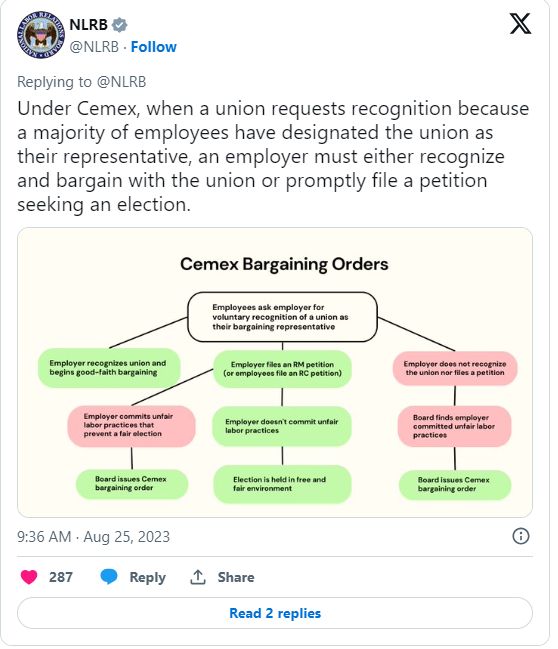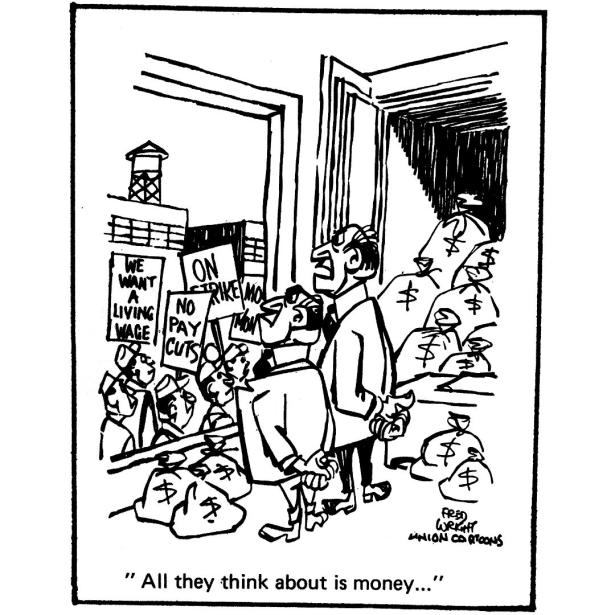The National Labor Relations Board issued new rules Friday that will make it easier for workers to form unions—and much more difficult for companies to stop them.
The new unionization process framework is part of a decision in a case between Cemex Construction Materials Pacific and the International Brotherhood of Teamsters. If a majority of workers ask a company to recognize their union, under the new rules, the company must now immediately either recognize the union or petition the NLRB to hold a union election.
“However, if an employer who seeks an election commits any unfair labor practice that would require setting aside the election, the petition will be dismissed, and—rather than re-running the election—the Board will order the employer to recognize and bargain with the union,” the NLRB said in a statement announcing the ruling.
Essentially, if a company tries to union-bust, it will instead be forced to automatically recognize the union and start negotiating with them.

“The Cemex decision reaffirms that elections are not the only appropriate path for seeking union representation, while also ensuring that, when elections take place, they occur in a fair election environment,” NLRB Chair Lauren McFerran said in the statement. “An employer is free to use the Board’s election procedure, but is never free to abuse it—it’s as simple as that.”
The decision comes near the end of a banner season for workers’ rights. Earlier this week, Teamsters ratified a historic contract with UPS. The so-called “hot labor summer” has also seen Trader Joe’s workers, Alamo Drafthouse Cinema employees, and students and interns start to unionize. Screenwriters and actors who are members of SAG-AFTRA have been on a historic strike for months.
The New Republic was founded in 1914 to bring liberalism into the modern era. The founders understood that the challenges facing a nation transformed by the Industrial Revolution and mass immigration required bold new thinking.
Today’s New Republic is wrestling with the same fundamental questions: how to build a more inclusive and democratic civil society, and how to fight for a fairer political economy in an age of rampaging inequality. We also face challenges that belong entirely to this age, from the climate crisis to Republicans hell-bent on subverting democratic governance.
We’re determined to continue building on our founding mission.


Spread the word